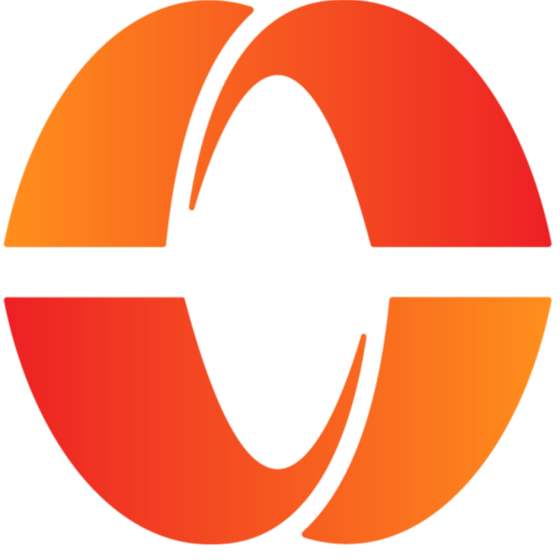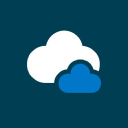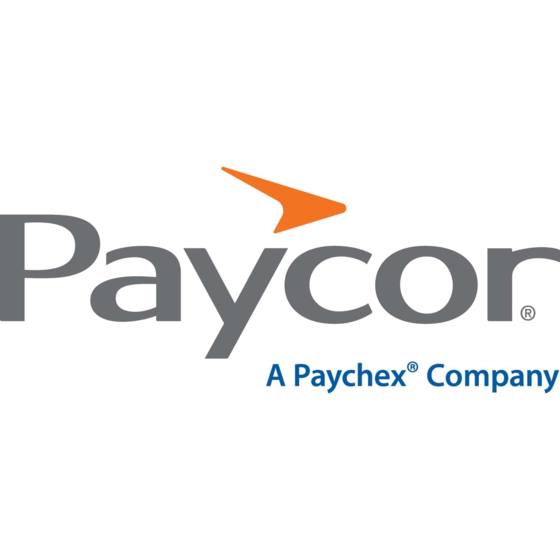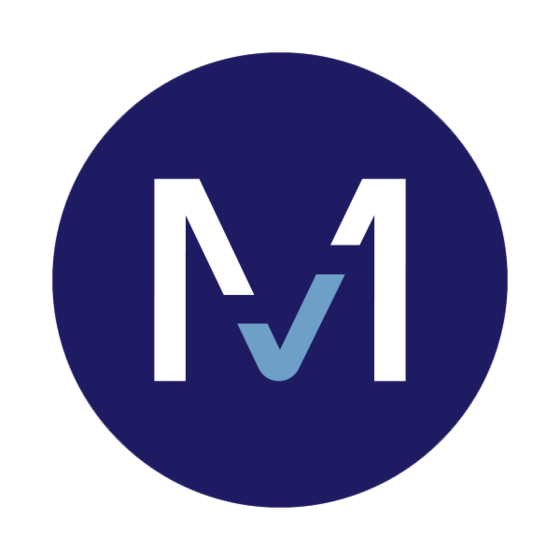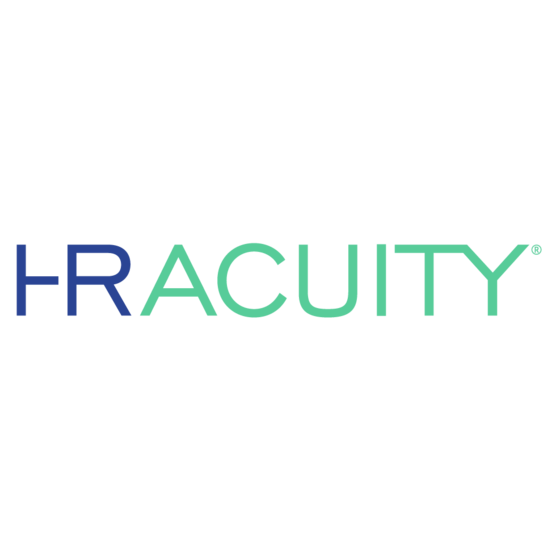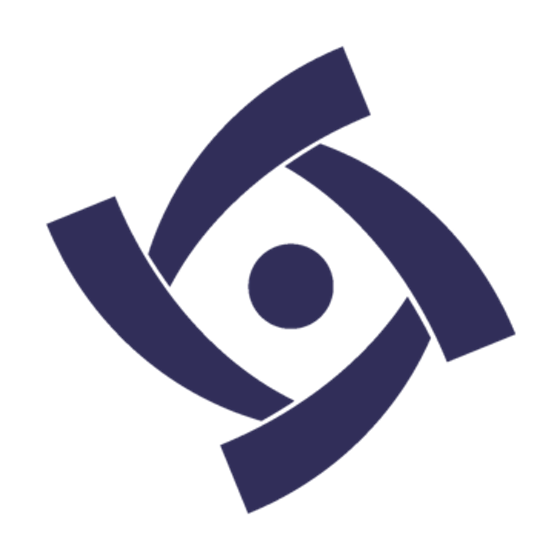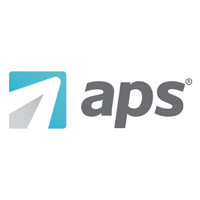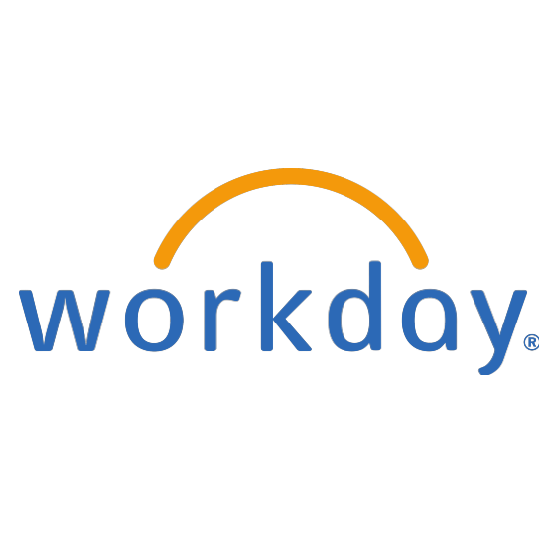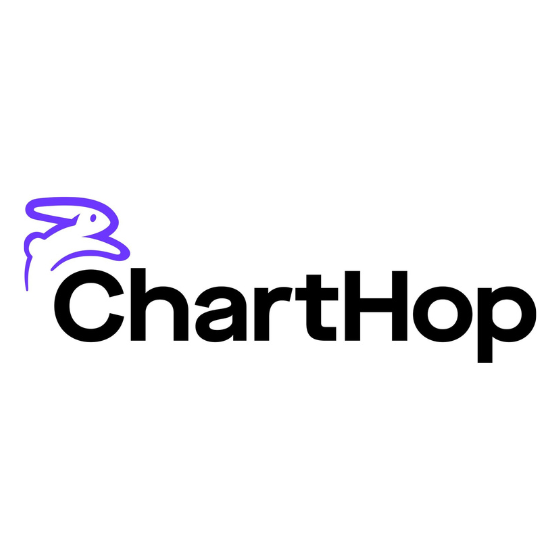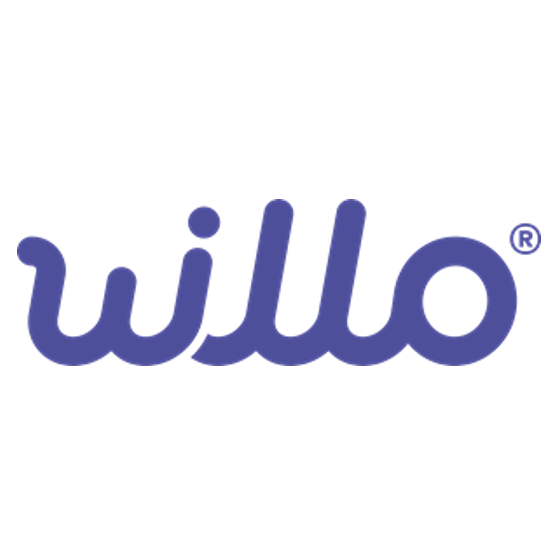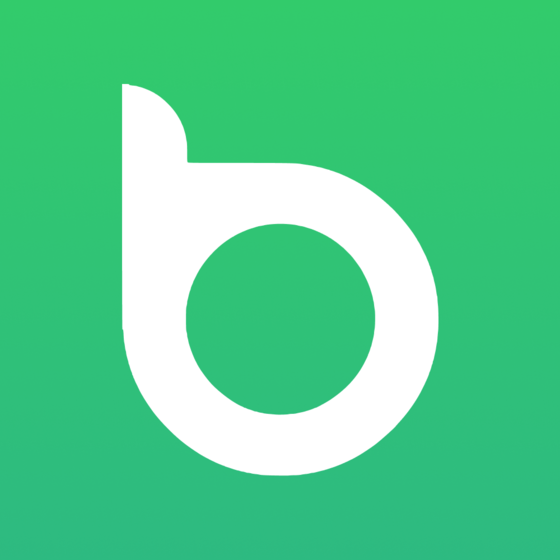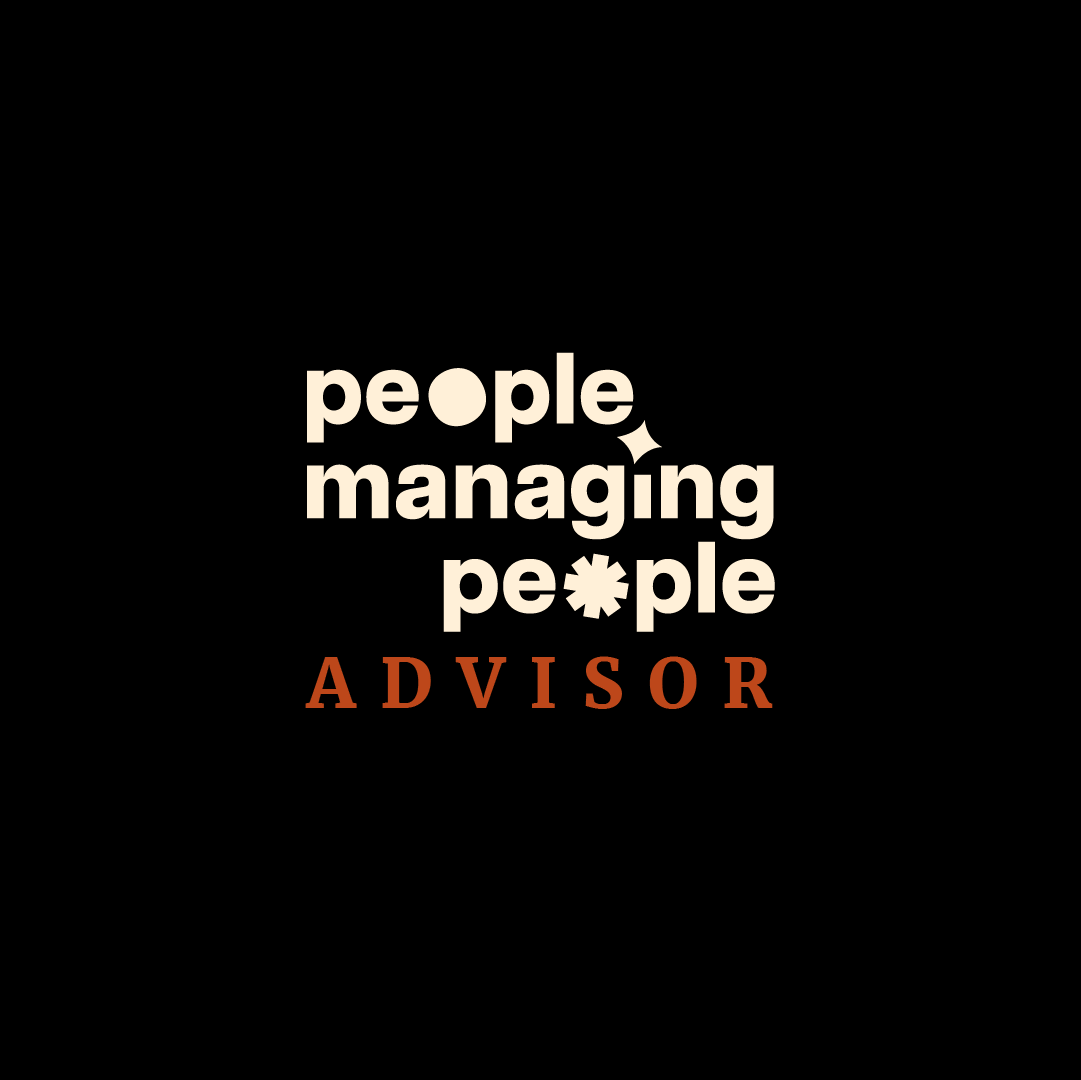10 Best HR Software For Healthcare Shortlist
Here's my pick of the 10 best software from the 25 tools reviewed.
Talk through what you’re looking for. Get a custom shortlist based on your needs. No fees.
Choosing the right HR software for healthcare is tough with so many options out there. HR software for healthcare streamlines HR tasks, improves compliance tracking, and enhances staff management. It is a great tool for avoiding inefficient scheduling, compliance issues, and staff burnout.
You need to manage staff, track compliance, and ensure patient care standards, but figuring out which tool fits best is challenging. I've got you! Drawing from years of experience using various HR tools in healthcare settings, I'll help you find the best options. Here are my top picks of HR software for healthcare.
Why Trust Our Software Reviews
We’ve been testing and reviewing HR software for healthcare since 2019. As HR experts ourselves, we know how critical and difficult it is to make the right decision when selecting software.
We invest in deep research to help our audience make better software purchasing decisions. We’ve tested more than 2,000 tools for different HR management use cases and written over 1,000 comprehensive software reviews. Learn how we stay transparent & our HR software for healthcare review methodology.
Best HR Software For Healthcare Summary
This comparison chart summarizes pricing details for my top HR software for healthcare selections to help you find the best software for your budget and business needs.
| Tool | Best For | Trial Info | Price | ||
|---|---|---|---|---|---|
| 1 | Best for managing staffing challenges and training | Free demo available | Pricing upon request | Website | |
| 2 | Best for managing global healthcare teams | Free trial + demo available | From $29/month | Website | |
| 3 | Best for absence and rota tracking | 14-day free trial | From $22/user/month | Website | |
| 4 | Best for high-volume healthcare hiring | 30-day free trial | Pricing upon request | Website | |
| 5 | Best for credentialing healthcare staff | Not available | Pricing upon request | Website | |
| 6 | Best for HR case management | Free demo available | Pricing upon request | Website | |
| 7 | Best for complex compensation planning | Free plan available | Pricing upon request | Website | |
| 8 | Best for efficient employee scheduling and compliance | Not available | Pricing upon request | Website | |
| 9 | Best for health and safety training and reporting | Free trial + free demo available | From $4.08/user/month | Website | |
| 10 | Best for integrated enterprise management | Free demo available | Pricing upon request | Website |
-

ChartHop
Visit WebsiteThis is an aggregated rating for this tool including ratings from Crozdesk users and ratings from other sites.4.3 -

Willo
Visit WebsiteThis is an aggregated rating for this tool including ratings from Crozdesk users and ratings from other sites.4.8 -

Boon
Visit WebsiteThis is an aggregated rating for this tool including ratings from Crozdesk users and ratings from other sites.4.7
Best HR Software For Healthcare Reviews
Discover in-depth analysis and overviews of top HR software for healthcare. We’ll walk through the pros and cons, their features, and their best use cases.
Paylocity is a cloud-based human resources and payroll software designed to meet the diverse needs of businesses across various industries. It offers a comprehensive suite of tools that streamline HR processes, from payroll management to employee engagement.
Why I picked Paylocity: I chose Paylocity for its ability to help healthcare organizations manage staffing shortages and complex scheduling. The platform offers tools to attract and retain healthcare professionals, which is crucial in an industry often facing staffing challenges. By addressing these specific needs, Paylocity ensures that your healthcare facility can maintain optimal staffing levels and provide quality patient care. Additionally, Paylocity's platform includes features tailored to the healthcare sector, such as managing certifications, training, and compliance requirements.
Standout features & integrations:
Features include payroll reports, payroll auditing and error reporting, tax filing, integrated payroll, general ledger mapping, wage garnishment, global payroll, on-demand payment, compliance dashboard, data analytics, and workflows and documents.
Integrations include ClearStar, Microsoft Dynamics 365, 7shifts, AirMason, APA Benefits, Azure, Atlassian, Asana, Box, ClearCompany, Dropbox, Freshdesk, Google Workspace, Greenhouse, HubSpot, Slack, Salesforce, Trakstar, and Zoho People.
Pros and cons
Pros:
- Includes tax compliance services
- Comprehensive suite of HR and payroll features
- Tailored workflows and reports
Cons:
- Mobile app functionality is more limited compared to the desktop version
- Setup can be time consuming
Deel is a global HR platform designed to help businesses, including healthcare organizations hire, manage, and pay employees and contractors across over 150 countries.
Why I picked Deel: I chose Deel for its ability to manage complex compliance requirements in the healthcare industry. Deel's Compliance Hub provides access to the latest regulatory updates and risk warnings, offering guidance and actionable alerts to enhance compliance—all in a single place. It also offers contractor management capabilities. Deel automates HR admin, mitigates misclassification risk, and ensures on-time payment options in 150+ countries. This is particularly beneficial for healthcare organizations that rely on a diverse workforce, including specialists and consultants.
Standout features & integrations:
Features include self-serve onboarding, process automation, time off management, expense management, people directory and org charts, document management, reporting, app provisioning, compliance monitoring, worker classifier, and monthly workforce insights.
Integrations include Brex, Google Workspace, Hubstaff, JIRA, Slack, QuickBooks, Xero, BambooHR, NetSuite, Workday, Greenhouse, and Okta.
Pros and cons
Pros:
- Strong emphasis on compliance
- Comprehensive payment options in multiple currencies
- Contractor management options
Cons:
- Limited customization options
- Initial setup may take some time
Breathe HR is a cloud-based HR management system built to centralize employee data and automate everyday HR tasks.
Why I picked Breathe HR: You can track staff availability and absences—a real must in healthcare—using built-in holiday and sickness management. That means you’ll spot coverage gaps and plan rotas more effectively, avoiding understaffing. This tool also includes a burnout monitor and NPS surveys built right in. You can track workload patterns and morale trends, which is crucial in high-stress healthcare settings, and send nudges when staff are heading toward burnout. Gathering this feedback regularly lets you support wellbeing before it becomes a bigger problem
Standout features & integrations:
Features include performance management tools, which help track employee progress and recognize achievements. It also has recruitment tools that simplify the job posting and application process and a secure document management system, allowing you to store and organize important HR documents.
Integrations include AdviceSheet, Harriet, Hireful, LivePay, Mintago, Pleo, Posture People, WeThrive, and Xero Payroll.
Pros and cons
Pros:
- Good leave management features
- Great reporting tools and dashboard visibility
- Self‑service portal boosts autonomy
Cons:
- Recruitment and time and attendance are paid add-ons
- Could offer more platform customization options
Paycor is a human capital management (HCM) platform designed to support small to mid-sized healthcare organizations with workforce management, recruiting, and compliance tools. It serves hospitals, clinics, long-term care facilities, and other healthcare providers looking to reduce administrative work and improve hiring efficiency.
Why I picked Paycor: I chose Paycor for its healthcare-focused recruiting and onboarding features, which help address common challenges like high turnover and urgent staffing needs. The platform supports branded career sites, automated applicant tracking, and onboarding workflows tailored to different healthcare roles. These tools allow HR teams to quickly find, vet, and activate high volumes of qualified candidates. Paycor also offers credential tracking and scheduling tools, giving healthcare managers visibility into staff licensure and shift coverage. That can help reduce compliance risk and prevent coverage gaps, especially in multi-location or 24/7 care environments.
Standout features & integrations:
Features include AI-powered sourcing and recruiting tools, automated scheduling with credential visibility, and a compliance dashboard to manage licensure and policy adherence. The COR Leadership Insights feature provides manager development metrics, while recognition tools allow staff to highlight peer performance directly in-platform.
Integrations include QuickBooks, Xero, SAP Concur, Indeed, LinkedIn, Glassdoor, Zapier, Microsoft Teams, Slack, and DocuSign.
Pros and cons
Pros:
- Industry-specific HR and payroll solutions
- Advanced employee performance tracking
- Wide range of integrations with popular tools
Cons:
- UX can feel a bit clunky at times
- May require additional support for full customization
MedTrainer is a healthcare-specific HR platform built to centralize compliance training, credentialing, and document management in one system. It’s used by organizations across ambulatory surgery centers, urgent care clinics, hospitals, and community health centers.
Why I picked MedTrainer: I chose MedTrainer for its healthcare-focused approach to credentialing, which includes managed services, exclusions monitoring, and automated license verification—features that can reduce manual tasks while supporting regulatory compliance. It also offers policy and document management tools, along with incident reporting, so HR teams can keep a centralized record of compliance materials and workplace events. This structure can support onboarding workflows and simplify preparation for audits or reviews.
Standout features & integrations:
Features include a built-in learning management system with access to hundreds of healthcare-specific training courses like CPR/BLS and HIPAA. It also offers configurable workflows for training assignments, plus real-time dashboards to track completion and certification timelines. AI tools like the AI Policy Guardian and AI Compliance Coach can help with answering compliance-related questions and managing policies.
Integrations include Absorb Software, ADP, CARR, CAHF, CHAMPS Group Purchasing, CommonWealth Purchasing Group (CPG), Kenyon Homecare Consulting, McKesson Corporation, and more.
Pros and cons
Pros:
- Credentialing automation
- Extensive library of training courses
- Incident reporting available
Cons:
- Incident management features may need enhancement
- Difficulties in editing or customizing website elements
New Product Updates from MedTrainer
Customizable Policy Templates Library
MedTrainer Compliance users can now access over 2,000 policy templates, including HIPAA and OSHA, in the Template Library, which can be customized, signed, and downloaded. For more details, visit MedTrainer's updates.
HR Acuity is a platform tailored for HR management and employee relations, designed to enhance compliance and handle workplace issues. It is aimed at HR professionals, legal teams, diversity leaders, and executives across various industries, including healthcare.
Why I picked HR Acuity: HR Acuity is designed to address the specific challenges of healthcare HR management through features like employee workplace reporting, case management, and workplace investigations. These tools are crucial for managing sensitive employee relations issues with confidentiality and compliance, enabling healthcare organizations to handle incidents transparently and consistently. The platform's analytics also offer insights into employee relations trends, supporting informed decision-making that can improve workforce management and mitigate risks related to non-compliance and litigation.
Standout features & integrations:
Features include incident tracking, case management, investigation templates, compliance monitoring, reporting and analytics, ethics and compliance hotline, policy management, audit trails, and an AI assistant.
Integrations include Workday, Oracle, ADP, Ultipro, other HRIS systems, and ComplianceLine. It also offers its REST-based API for integration with ticketing systems and compliance solutions.
Pros and cons
Pros:
- Offers benchmarking dashboards
- Centralized case documentation
- Robust reporting capabilities
Cons:
- User interface could be more intuitive
- Advanced features require time and training
Aeqium is a compensation planning software designed to help complex healthcare organizations manage salary structures, bonuses, and equity planning.
Why I picked Aeqium: I picked Aeqium as a good HR software for healthcare because it helps HR teams manage compensation cycles without relying on spreadsheets. Its compensation cycle management tools let you automate workflows and tailor processes to your organization's pay structure. The compensation bands feature allows you to define clear, fair pay ranges, which is essential for maintaining equity and compliance in a healthcare setting. These tools help you track changes, align pay with business goals, and create a more transparent compensation system overall.
Standout features & integrations:
Features include compensation insights, an employee portal, interactive offer letters, compensation cycle management, real-time data integration, customizable workflows, pay equity analysis, historical compensation tracking, total rewards statements, automated compensation alerts, and custom compensation reporting.
Integrations include ADP Workforce Now, BambooHR, Gusto, Justworks, Paylocity, Quickbooks, Run Powered by ADP, and DocuSign.
Pros and cons
Pros:
- Pay equity modeling tools
- Customizable templates for offer letters
- Flexibility in configuring pay bands
Cons:
- No built-in ATS or recruiting tie-ins
- Limited HR analytics beyond compensation
APS simplifies workforce management by streamlining administrative tasks, HR, payroll, and compliance management specifically for medical facilities. It helps healthcare organizations optimize operations with comprehensive recruiting, onboarding, and employee self-service tools reducing errors and time spent on administrative tasks for HR departments.
Why I picked APS: APS offers advanced labor distribution reporting and time-tracking capabilities that handle complex healthcare payroll structures like shift differentials and overtime. It supports GPS time tracking, real-time shift management to schedule employees across multiple shifts and locations, and built-in compliance management tools to stay updated with key regulations. Additionally, it offers reporting tools for submitting data for healthcare compliance audits.
Standout features & integrations:
Features include automated payroll processing, core HR management, attendance tracking, and compliance with healthcare regulations. APS also offers a user-friendly interface that facilitates efficient employee lifecycle management, from recruiting top talents to onboarding and performance tracking.
Integrations include QuickBooks, Sage, Xero, NetSuite, Microsoft Dynamics 365, Kronos, Paychex, ADP, Gusto, and BambooHR.
Pros and cons
Pros:
- Built-in ACA reporting tools
- GPS time tracking
- Shift differential management
Cons:
- Limited third-party integrations
- Limited benefits management customization
BrightHR’s Care Navigator is designed for healthcare, offering features and tools to manage staff compliance, safety, and well-being. It has customizable risk assessment templates and accredited e-learning courses covering essential healthcare topics.
Why I picked BrightHR: BrightHR’s Care Navigator tool offers comprehensive health and safety training through its CPD-accredited courses for healthcare workers to access training on safeguarding, mental health awareness, infection prevention, and more. It tracks employees’ training progress and automatically records completed certifications, automated compliance tracking and documentation, and an intuitive incident reporting system for workplace accidents and hazards management.
Standout features & integrations:
Features include customizable risk assessment templates, automated compliance tracking, training progress monitoring, an incident reporting system, automated certification management, mobile access for staff, and expert advice on workplace safety and regulations.
Integrations include Google Calendar, Microsoft Outlook, Slack, Xero, QuickBooks, Sage, Zapier, BambooHR, G Suite, and Microsoft Dynamics 365.
Pros and cons
Pros:
- Automate certification tracking
- Customizable employee safety checklists
- Specialized healthcare risk assessments
Cons:
- No direct payroll integrations
- Slight learning curve
Workday optimizes HR processes by integrating workforce, payroll, and talent management in one platform, helping organizations improve operational efficiency and enhance employee engagement.
Why I picked Workday: Workday offers strong integration across HR, finance, and IT, allowing organizations to link their workforce data with financial performance metrics. The software’s advanced analytics provide insights into employee performance, turnover rates, and overall workforce health. Workday also offers real-time visibility into labor costs, tracks certifications, and licensure, and automatically flags upcoming renewals.
Standout features & integrations:
Features include integrated workforce management, shift scheduling for healthcare employees, real-time labor cost analytics, payroll management, certification and licensure tracking, advanced performance analytics, employee self-service portals, and financial and HR data integration.
Integrations include Salesforce, Microsoft Azure, Slack, ServiceNow, Okta, Google Workspace, SAP, Oracle, IBM, and Adobe.
Pros and cons
Pros:
- Automated compliance management
- Real-time workforce analytics
- Global payroll support
Cons:
- Complex workflow customization
- Limited benefits customization
Other HR Software For Healthcare
Below is a list of additional HR software for healthcare that we shortlisted, but did not make it to the top list. Worth checking them out.
- Oracle Cloud HCM
For dynamic workforce management
- UKG
For employee engagement and organizational growth
- CEDR HR Solutions
For compliance and a focus on error reduction
- ADP Workforce
For comprehensive payroll and HR needs
- Hireology
For efficient talent management
- Zoho People
For customizable HR workflows
- Rippling
For automatic HR data synchronization for payroll
- BambooHR
For employee engagement and satisfaction focus
- Paycor
For healthcare-specific HR features
- Ceridian Dayforce
For payroll and workforce management
- Bambee
For HR consulting services
- Symplr
For credentialing and compliance
- iSolved HCM
For niche healthcare HR features
- HiBob
For employee engagement features
- Infor CloudSuite HCM
For cloud-based HR solutions
Related HR Software Reviews
If you still haven't found what you're looking for here, check out these other related tools that we've tested and evaluated:
- HR Software
- Payroll Software
- Recruiting Software
- Employer of Record Services
- Applicant Tracking Systems
- Workforce Management Software
HR Software For Healthcare Selection Criteria
Selecting HR software for healthcare requires functionality and meeting specific use cases critical for this industry. As an expert who has personally tried and researched these tools, I prioritize criteria that address healthcare organization’s needs and pain points. Below are the key criteria used to evaluate HR software for healthcare.
Core HR Functionalities (25% of total score): To be considered for inclusion in this list, each solution had to fulfill these common use cases first:
- Drag-and-drop calendars for easy shift management
- Ensure adherence to healthcare regulations and standards
- Integrated payroll systems that handle complex healthcare pay structures
- Centralized databases for storing and accessing employee information
- Systems for tracking and evaluating employee performance
Additional Standout Features (25% of total score): To help me find the best software out of numerous available options, I also kept a keen eye out for unique features, including the following:
- Support telehealth services and virtual consultations
- Leverages AI to provide insights into workforce trends
- Fully functional mobile apps for on-the-go access
- Customizable dashboards, layout, data displays, and key metrics
- Detailed and customizable reporting options
Usability (10% of total score): To evaluate the usability of each system, I considered the following:
- Clean and user-friendly design that minimizes the learning curve
- Easy configuration of access levels for different user roles
- Interactive elements like drag-and-drop and real-time updates for better interactivity
Onboarding (10% of total score): To get a sense of each software provider's customer onboarding process, I considered the following factors:
- Availability of comprehensive video tutorials
- Guided tours that help users understand key features
- Pre-built templates to speed up initial setup
- AI-driven chat support for instant help
- Regular webinars for ongoing training and updates
Customer Support (10% of total score):
- Availability of round-the-clock customer service
- Multi-channel support, including phone, email, and live chat support
- Personalized support from dedicated account managers or representatives
- Extensive knowledge base for online resources and FAQs
- Response Time: Quick and efficient response times to resolve issues
Value for Price (10% of total score):
- Clear and upfront pricing structures
- Various pricing plans to suit different organizational sizes and needs
- Evaluation of features offered relative to the price
- Availability of discounts for long-term commitments or bulk purchases
- Assessment of the return on investment over time
Customer Reviews (10% of total score):
- High ratings and positive feedback from current users
- Specific feedback on the most and least liked features
- Reviews on the quality of customer support
- User comments on the software's usability
- General sentiment about the product's performance and reliability
Using this assessment framework helped me identify the software that goes beyond basic requirements to offer additional value through unique features, intuitive usability, smooth onboarding, effective support, and overall value for price.
How To Choose HR Software For Healthcare
As you work through your unique software selection process, keep the following points in mind:
- Compliance and Regulatory Requirements: Healthcare organizations must adhere to strict regulations such as HIPAA (Health Insurance Portability and Accountability Act). HR software should ensure compliance with these regulations to protect sensitive employee and patient data.
- Employee Credentialing and Training: Maintaining up-to-date employee credentials and certifications is crucial in the healthcare industry. HR software should facilitate certifications and license tracking, and mandatory training programs, ensuring all staff members are qualified to provide care.
- Staffing and Scheduling: Efficiently managing staff schedules is vital in healthcare to ensure adequate coverage and avoid burnout. Look for HR software offering powerful scheduling features, including shift swapping, automated scheduling, and real-time updates.
- Recruitment and Onboarding: The healthcare sector often faces staffing shortages and high turnover rates. Effective HR software should streamline the recruitment and onboarding process and must include features like applicant tracking systems (ATS) and background checks.
- Performance Management and Employee Engagement: Maintaining high employee engagement levels and performance is essential for delivering quality patient care. HR software should include tools for performance reviews, goal setting, and feedback collection to help identify areas for improvement and recognize high performers.
Trends For HR Software For Healthcare
The healthcare sector is rapidly evolving, and HR software is no exception. In the coming months, here are several key trends expected to shape the landscape of HR technology in healthcare.
- Skills-Based Hiring and Internal Mobility: Emphasizing skills over formal qualifications will enhance diversity and inclusivity in recruitment. Internal mobility will be crucial for employee retention, and fostering career development and engagement.
- Generative AI and Upskilling: AI integration in HR processes will streamline operations and improve efficiency. However, there will be a strong emphasis on upskilling employees to work effectively with AI technologies.
- Individualized Employee Experience: Customizing the employee experience to meet unique needs will enhance job satisfaction and engagement, moving away from a one-size-fits-all approach, and addressing the diverse needs of healthcare professionals.
- Hybrid Work Model: Refining hybrid work policies will be essential for balancing flexibility and productivity, requiring thoughtful planning and continuous evaluation. This trend is crucial as it adapts to the changing work environment, offering flexibility while maintaining operational efficiency.
- Financial Wellness for Aging Workforce: Addressing financial wellness and retirement planning will be crucial as the workforce ages, with programs focused on financial education and support. This ensures the financial security of healthcare professionals, contributing to their overall well-being and job satisfaction.
These trends highlight the need for healthcare HR professionals and their software tools to adapt to evolving practices and technologies. HR software for the healthcare industry is evolving in notable ways such as AI-powered upskilling which will aim to enhance efficiency, while skills-based hiring and internal mobility will be more important than ever. Keep an eye on these trends to stay ahead in the competitive landscape of the Healthcare industry.
What Is HR Software For Healthcare?
HR software for healthcare manages and streamlines human resources tasks within healthcare organizations. Healthcare administrators, HR professionals, and managers use it to handle employee records, payroll, benefits administration, compliance tracking, and recruitment processes. This software is essential for maintaining accurate employee data, ensuring regulatory compliance, and improving overall workforce management.
The components of HR software for healthcare typically include employee information systems, payroll management, benefits administration, time and attendance tracking, and compliance management. These features help healthcare organizations manage their workforce efficiently, reduce administrative burdens, and ensure they meet industry-specific regulatory requirements.
Features Of HR Software For Healthcare
Healthcare HR software is designed to streamline and optimize key processes within the industry, ensuring efficient management of personnel and resources. This software is essential for managing large workforces in hospitals and healthcare facilities, reducing administrative burdens, and enhancing operational efficiency. Below are the most important features to look for in HR software for healthcare:
- Automated Scheduling: Simplifies staffing by categorizing team members based on skills and availability, ensuring proper coverage and reducing scheduling conflicts.
- Talent Acquisition Tools: Automates job posting and applicant tracking processes, saving time and improving the hiring of qualified healthcare professionals.
- Compliance Monitoring: Ensures adherence to regulations such as HIPAA, meal and rest break laws, and licensure renewals. Compliance tools are essential for mitigating risks and upholding the highest standards of patient care.
- Comprehensive Reporting Capabilities: Provides detailed analytics and reports on various HR metrics, aiding in strategic decision-making, tracking performance, and making informed staffing decisions.
- Integrated Payroll Management: Offers tools for managing payroll budgets and analyzing historical data to make informed staffing decisions and ensure accurate compensation.
- Employee Self-Service Portals: Empowers employees to manage their information and requests, improving satisfaction and reducing administrative workload.
- Training and Development: Facilitates tracking and scheduling of continuing education courses for staff to ensure they meet necessary qualifications. Performance Management: Automates tracking of performance reviews and feedback, essential for addressing staff issues effectively, rewarding high performers and identifying areas for improvement.
- Mobile Accessibility: Ensures that HR functions can be managed on the go, improving efficiency. Mobile access allows HR professionals and employees to perform tasks from anywhere, enhancing flexibility.
- Data Security: Enhanced security features are crucial for safeguarding sensitive employee and patient information. Strong security measures protect against data breaches and ensure compliance with privacy regulations.
Investing in specialized HR software can significantly improve productivity and resource management in the healthcare sector. By automating and streamlining various HR activities, healthcare organizations can focus more on delivering high-quality patient care.
Benefits Of HR Software For Healthcare
Healthcare organizations face unique challenges in managing their workforce, from ensuring compliance with stringent regulations to addressing high employee turnover and burnout. Implementing HR software can significantly streamline HR processes, improve efficiency, and enhance employee satisfaction. Below are some primary benefits of HR software for healthcare organizations:
- Improved Efficiency and Productivity: HR software automates time-consuming tasks, such as managing employee records and tracking training requirements, enhancing the organization’s efficiency.
- Enhanced Compliance Management: HR software helps healthcare organizations stay compliant with industry regulations by tracking licensure renewals, and other critical certifications. This mitigates risks and ensures the highest standards of patient care.
- Streamlined Recruitment and Onboarding: The software simplifies the recruitment process by automating job postings, applicant tracking, and onboarding procedures, ensuring that new hires are efficiently integrated into the organization.
- Effective Employee Management: HR software provides tools for performance tracking, feedback, and employee development, helping to improve employee engagement and retention. This leads to a more motivated workforce and better patient care.
- Improved Communication and Collaboration: The software facilitates better communication among staff by providing platforms for real-time updates and collaboration. This is important in healthcare settings where information sharing can impact patient outcomes.
HR software for healthcare organizations offers numerous benefits that enhance operational efficiency, compliance, and employee satisfaction. By automating and streamlining HR processes, healthcare providers can focus more on delivering quality patient care while maintaining a well-managed and motivated workforce.
Costs And Pricing Of HR Software For Healthcare
This section provides an estimate of average HR software plans and costs for healthcare organizations.
Plan Comparison Table for HR Software for Healthcare
| Plan Type | Average Price | Common Features |
| Free Plan | $0 | Basic employee management, limited user access, basic reporting |
| Personal Plan | $25 - $50 /month | Employee self-service, time tracking, basic compliance tools, limited support |
| Business Plan | $50 - $150 /month | Advanced compliance management, payroll integration, scheduling, customer support |
| Enterprise Plan | $150 - $300+ /month | Full suite of HR tools, advanced analytics, custom integrations, dedicated support |
FAQs About HR Software For Healthcare
How does HR software for healthcare ensure compliance with HIPAA and other regulatory requirements?
HR software designed for healthcare often includes features to ensure compliance with HIPAA and other regulatory requirements. These features include secure data storage, encryption, and access controls to protect sensitive employee and patient information. Additionally, many HR software solutions offer compliance tracking and reporting tools that help healthcare organizations stay up-to-date with regulatory changes. Regular audits and updates from the software provider also play a crucial role in maintaining compliance.
Can HR software integrate with existing payroll and scheduling systems in healthcare organizations?
Yes, many HR software solutions for healthcare are designed to integrate seamlessly with existing payroll and scheduling systems. This integration allows for a more streamlined workflow, reducing the need for manual data entry and minimizing errors. By connecting HR software with payroll and scheduling systems, healthcare organizations can ensure that employee information is consistent across all platforms, leading to more accurate payroll processing and efficient scheduling.
How can HR software help manage the unique staffing challenges in healthcare?
HR software can help manage the unique staffing challenges in healthcare by providing tools for efficient scheduling, time tracking, and shift management. These tools allow healthcare organizations to optimize staffing levels, ensuring enough staff members to meet patient needs without overstaffing. Additionally, HR software can help with recruitment and onboarding processes, making it easier to fill open positions quickly and efficiently. By automating these tasks, HR software helps reduce administrative burdens and allows HR staff to focus on more strategic initiatives.
How does HR software support employee training and development in healthcare?
HR software supports employee training and development in healthcare by providing tools for creating, managing, and tracking training programs. These tools can include online learning modules, certification tracking, and performance assessments. By centralizing training information, HR software makes it easier to ensure that all employees meet required competencies and stay up-to-date with the latest industry standards.
What are the common challenges faced during the implementation of HR software in healthcare, and how can they be addressed?
Common challenges during the implementation of HR software in healthcare include:
- Data Migration: Transferring existing data to the new system can be complex and time-consuming. This can be addressed by working closely with the software provider to ensure a smooth migration process.
- User Adoption: Ensuring staff members are comfortable using the new software can be challenging by providing comprehensive training and ongoing support.
- Integration Issues: Integrating the new HR software with existing systems can present technical challenges. It is important to choose a software solution with strong integration capabilities and to work with IT staff to address any issues.
- Cost: The cost of implementation can be a concern. Careful budgeting and choosing a software solution with a good balance of features and cost can help manage expenses.
How can HR software improve employee engagement and retention in healthcare organizations?
HR software can improve employee engagement and retention in healthcare organizations by providing tools that enhance the employee experience. Features such as self-service portals, performance management, and feedback systems allow employees to participate in their HR processes. By making it easier for employees to access information, manage their schedules, and receive feedback, HR software helps create a more positive and engaging work environment.
What’s Next?
To remain up to date on all the latest in people management, subscribe to our newsletter for leaders and managers. You'll receive insights and offerings tailored to leaders and HR professionals straight to your inbox.

